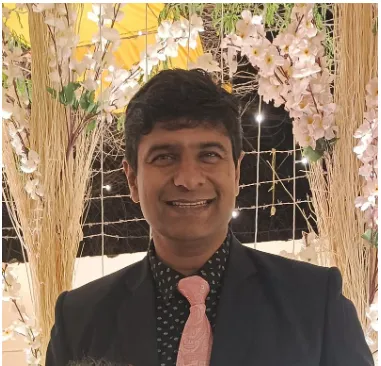Helping HIV patients to decolonising therapy: 10 social stories of change and impact
Here’s a recap of the top social stories of 2023—of change, social impact and understanding new social trends.
‘Be the change you want to see in the world’ can never be a cliché. Giving back to society doesn’t just enrich the lives of those impacted, but makes the world a better and more fulfilling place to live in with empathy, hope and faith.
At SocialStory, our endeavour has always been to open our eyes to the goodness around us—whether it's individuals or organisations that are going the extra mile to help others lead better lives and make a difference in society as a whole.
As the year ends, let’s revisit some of our top social stories this year…
Inclusiveness is a way of life
For the Shradhanjali Integrated School (SIS) run by the Association of People with Disability (APD) in Lingarajapuram, Bengaluru, inclusion is not just a buzzword but a norm.
Founded in 1959 by NS Hema, who was afflicted by polio as a child, SIS has 310 children, 80% of whom have varying disabilities spanning locomotor, visual, hearing, speech, intellectual, and multiple disabilities. These include children with cerebral palsy, Down’s Syndrome, autism, muscular dystrophy, and others, except those with total blindness.
The school follows the Karnataka State Board curriculum in English and focuses on all-round development, including co-curricular activities and sports. It tailors education for each child through Individual Educational Plans (IEP) and Individual Rehabilitation Plans (IRP). IEP focuses on academics with a focus on reading, writing, and arithmetic, while IRP, formulated by a team of therapists, addresses various domains like functional, daily activities, cognitive, communication, or behavioural aspects.
“If you come here in the morning, you can see how inclusiveness begins early. You will see a child who is hearing and speech impaired pushing the wheelchair of a child with locomotor disability,” says NS Senthil Kumar, the CEO of APD.
Helping people with HIV
When Vanlalruati Colney discovered blisters on her body, she sought medical help and was diagnosed with herpes zoster. A test confirmed that she was HIV-positive and she was soon isolated at the hospital.
“I was unaware I was being discriminated against. In 2004, there was no ART (anti-retroviral therapy) centre for HIV patients and people had the notion that they would not live long and would be left to die,” she says.
After coming out of the hospital, she fought against her drug addiction and began working with community organisations and NGOs in Mizoram, offering counselling to HIV-positive women.
Eventually, she started Positive Women’s Network of Mizoram (PWNM) in 2007 to organise advocacy and awareness programmes and provide medical support, rehabilitation, nutrition, legal counsel, counselling, and employment opportunities to people suffering from HIV.
She reached out to HIV+ women, infected children, sex workers, and drug users so that they could be counselled and to prevent further transmission.
“The disease can be managed if diagnosed early and treatment starts on time and continues regularly. Don’t be afraid to approach your counsellor or doctor at any time. Be open about how you feel and talk to your peers. There’s life after an HIV diagnosis. Be brave and understand you deserve to be happy,” she says.
Taking Kathakali forward

Ayirur is a serene village on the banks of the holy river Pamba in Kerala’s Pathanamthitta district. It has been officially renamed as Ayirur Kathakali Gramam (Ayirur Kathakali Village) and was recently christened as India’s first Kathakali village by the Ministry of Home Affairs and the Surveyor General of India.
Located just 60 km away from the famous temple shrine of Sabarimala, 70% of people in the village are associated with Kathakali in some form or another. The village has a Kathakali Club with 400 members, which provides study sessions in schools to teach basic mudras and make-up to students.
Additionally, the village hosts a week-long Kathakali festival on the banks of the Pamba every year, attracting around 15,000 people. The club also organises a literary appreciation class every month to discuss classics, plays, and how they can be connected to storytelling through Kathakali. The village is now set to establish a Kathakali museum and an institute for Kathakali to further promote this ancient art form and draw tourists.
Overcoming sexual trauma
Coping from sexual trauma is challenging and involves several challenges—mental, physical, and emotional. A large number of survivors suppress their traumatic memories in the healing process. This places a burden on the body to process distressing events, resulting in effects like heightened muscle tension, chronic fatigue, and enduring physical and mental health issues.
Many trauma-informed psychotherapists are spreading awareness about sexual trauma and supporting people in reclaiming their lives. These experts discuss the significance of addressing sexual trauma in the context of gender, caste, and cultural factors.
Professionals believe that trauma isn’t solely about the events themselves but about how an individual’s nervous system processes them.
“Healing trauma at its core involves resourcing and rewiring the nervous system, guiding it from a survival state toward a restored baseline of regulation,” says Delhi-based clinical psychologist Ashmeet Kaur
Trauma-informed psychotherapists and mental health professionals also suggest somatic exercises, breathwork, trauma-centred movement, arts-based therapy, depth-oriented psychotherapy, psychodrama, and other methods to help survivors identify, heal, and recover from sexual trauma.
Decolonising therapy
The colonial understanding of any relationship—filial or intimate—as a fairly transactional equation built on agency is born in privilege, where Western therapy-inspired concepts such as ‘red flags’ and ‘boundaries’ have been built into the discourse. However, in a country where oppression has and continues to defend deep-rooted social, cultural and economic polarities, these concepts do little to resolve long-standing generational trauma, believe new-age mental health professionals.
Decolonising mental health means creating tailored interventions for societies affected by colonisation, racism, and oppression, especially in indigenous, black, and brown communities. Decolonial therapy aims to empower individuals by returning control to their hands.
Experts suggest that cultivating the awareness to identify the trauma in the family line is just the first step. Next is operating with yourself to identify parts of yourself and others that are instrumental in perpetuating the trauma cycle, and have remained unresolved over generations
“Addressing generational trauma is doing shadow work (a process of self-exploration and self-acceptance aimed at confronting, acknowledging and embracing the hidden, often uncomfortable, aspects of oneself to achieve personal growth). You look at your family from an objective place and learn that they are separate beings,” psychotherapist Sneha Rooh says.
Navigating mental health in Tihar jail

Dr Vivek Rustagi, the Head of the Department of Psychiatry, is in charge of the mental health units of Tihar and Mandoli complexes.
Working in a volatile and unpredictable environment such as a prison and dealing with cold-blooded criminals can be challenging. Rustagi recalls that when he joined, his interactions with the inmates were unsettling. “When I was new, I was very much affected by my interaction with the inmates. I would go back home and think of the crimes some of them committed,” he says.
Rustagi says that the lack of proper staff strength puts immense pressure on the whole system. Tihar and Mandoli complexes have 12 posts of psychiatrists, 13 posts of clinical psychologists, and 17 posts of psychiatric social workers. However, half of the psychiatrists' posts remain empty. He says that the lack of psychologists puts a lot of pressure on the psychiatrist.
Bringing countries closer
Shreya Mazumdar grew up hearing about the long-drawn conflicts between India and Pakistan. However, in 2014, she was moved when she saw both countries come together and pray for Pakistan during the Army Public School attack in Peshawar. Touched by this solidarity, Mazumdar wanted to stir a dialogue around the persistent hostility between the two nations by bringing to light the commonalities of the two countries.
In 2015, she started Paaq Bandhu—or pure friends—an online forum for people in India and Pakistan to engage in dialogue and activities based on various forms of art such as music, film, and poetry to promote harmony and understanding through shared interests and experiences.
The organisation holds three interactive sessions a month where participants engage in discussions on pre-selected themes. The platform also has a segment called Rubaroo Online Interactions. It comprises interviews with famous Pakistani artists and activists about their journey and work, and discussions on identity, nationality, religion, and creative resistance to draw a parallel between the nations.
Love in silver years
A growing number of seniors are batting social stigma and prejudice to assert their right to companionship, find love, and overcome loneliness and isolation in old age.
Asserting one’s right to security and companionship may be legally acceptable, but for scores of elderly—especially women—a relationship in their twilight years still remains a taboo in society.
The Supreme Court has declared live-in relationships in India to be legal, and, in recent years, it has also brought into this purview laws regarding domestic violence. However, despite legal sanction, senior citizens have to deal with cultural factors, social acceptance, and the stigma associated with remarriage at old age. Besides these, there is also the issue of inheritance, which children don’t want to deal with at a time in life when they themselves are married and parents to young children.
Helping children escape sex work
Veerendra Mishra, an IPS officer from Madhya Pradesh, provides education to more than 5,500 children of the Bedia community, traditionally engaged in inter-generational sex work, through his non-profit Samvedna,.
The Bedia community has traditionally and historically engaged in sex work, and young girls enter the profession with the consent of their community. It’s not uncommon for three generations of a family to become sex workers. For Mishra, it was an insight into how the whole community was stigmatised, with little access to education or better living for children.
To ensure human trafficking is seen and addressed by a social justice system, Mishra launched the RACE (Research, Advocacy, and Capacity Building against Exploitation) Lab. A vertical of Samvedna, RACE is India’s first anti-human trafficking lab. As a think-tank, it focuses on evidence-based research, advocates for policy and system changes, and builds the capacities of stakeholders to create an ecosystem to prevent and counter human trafficking.
Dance therapy
The Hrishikesh Centre for Contemporary Dance, run by Pune-based choreographer Hrishikesh Pawar, offers free dance classes to Parkinson’s patients to help them improve balance, flexibility, and coordination, and is busting the stigma around the disorder.
“This dance class focuses on building the confidence of people with Parkinson’s by normalising their health condition. It aims at community building so that these people have a sense of belonging along with helping them in improving balance and coordination,” says Pawar.
Starting with a dry run of three students, Pawar now has 25 students attending the classes offline and around 35 people who participate in online sessions. To make these classes more inclusive, Pawar has opened a batch to Parkinson’s patients over 50 years. Pawar’s dance group is affiliated with the Mark Morris Dance Group (MMDG) and the Brooklyn Parkinson Group (BPG), which started offering free dance classes for people with Parkinson’s in 2001.
Edited by Kanishk Singh






